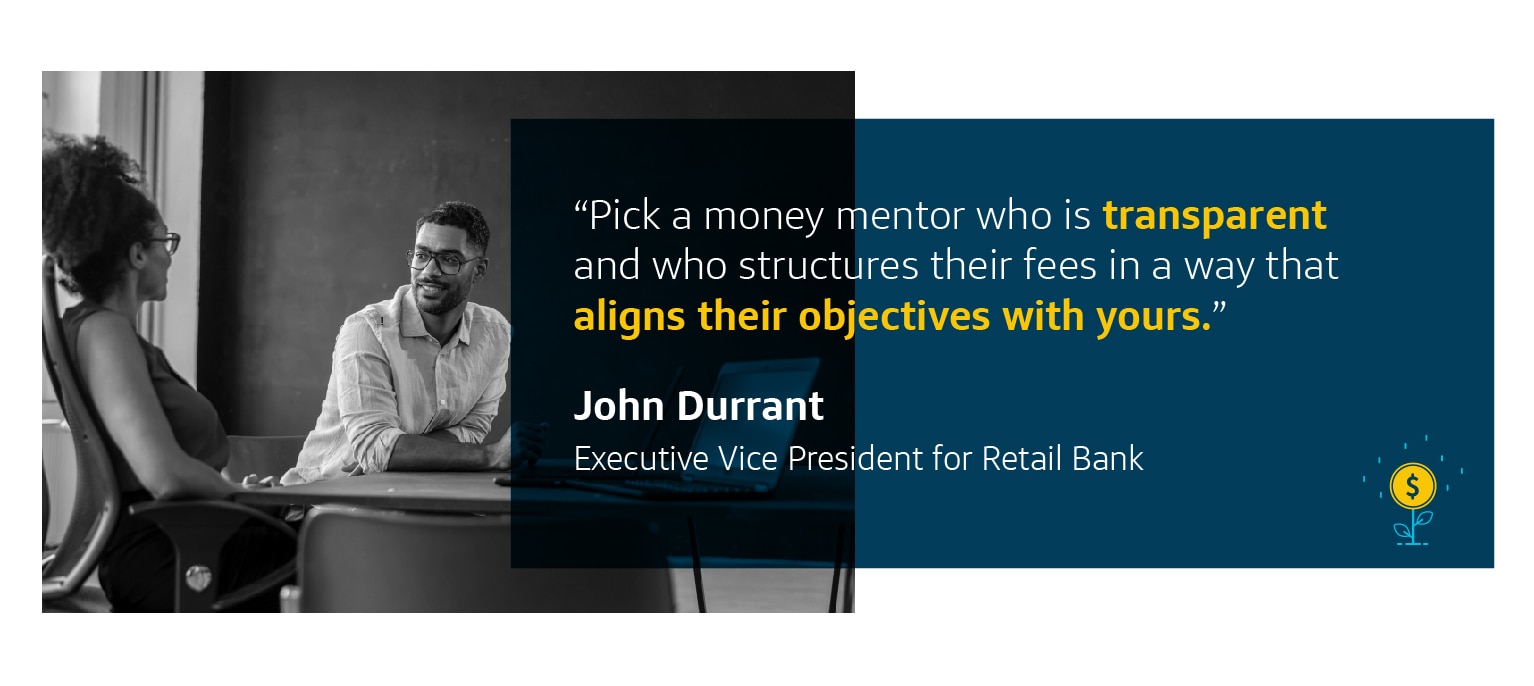Looking for a Money Mentor? How to Find “The One”
These 7 steps will help you connect with a money mentor who is right for you
When you think of perfect matches, you might envision celebrity couples, fabulous wardrobes, or even (especially?) peanut butter and chocolate. What you probably don’t picture is a person paired with their ideal financial coach or mentor.
But maybe you should: After all, here at Capital One, we believe that taking ownership of your finances will not only help you build wealth, it’ll improve your overall well-being. And a good money mentor can help you do just that.

The right mentor does more than dispense conventional money advice: They can help you change your behavior and put you on a path to financial success. If you’re ready to match with someone who can help you take your finances to the next level, here are some steps to help you find the right money mentor for you.
Leverage Your Network
Don’t be shy about asking for help. “If you’ve done the basics of money management, but can do more, confide in an expert you trust to develop a personalized plan,” advises John Durrant, Executive Vice President for Retail Bank. For you, the answer could be as close as your mobile contacts or a LinkedIn connection. No luck there? Ask someone you trust for recommendations.
Study Up

“Have an honest look at your cash flow — what comes in, what goes out, and how much it fluctuates,” says Durrant. “You and your money mentor can then create a plan and establish a realistic budget.” Also, brush up on money concepts like how to view different types of debt and the power of compound interest. If you plan to invest or save for retirement, review the options for 401(k)s, IRAs and individual accounts.
Look for Helpful Resources
One place to start is Capital One’s Money Coaching, a free program that offers up to three sessions with a certified Coach. It’s open to everyone, even non-customers. “Whether in-person or virtual, certified coaches help users align their life and money goals and create a personalized action plan,” says Durrant. “These sessions help people better understand their relationship to money.”
Be Honest About your Financial Acumen
One question that Durrant loves to ask mentees is, ‘What is your financial literacy level?’ He advises anyone getting serious about their financial station to “be honest with what you have, what you can save and the life you want to live.” Being candid about your money-management skills opens the door for an honest conversation.
Choose a Qualified Mentor
A money mentor is someone that is good at managing money and willing to share their expertise with others. Some people use financial advisors to help them make better financial decisions. “Make sure your mentor is qualified or certified,” advises Durrant. Financial planners or advisors are subject to oversight from FINRA, the Financial Industry Regulatory Authority, or the SEC, which stands for the Securities and Exchange Commission. FINRA offers a helpful tool to decipher a professional’s designation after their name and confirm their legitimacy.
Ask Some Key Questions
Before committing to a qualified professional, ask about areas of expertise, compensation arrangements and strategy. Ask questions like: Are you primarily an advisor or financial planner? How do you charge for services? What credentials and education do you have? How will our relationship work? What’s your investment philosophy? Remember that you’re hiring this individual to help clarify your financial life. Their answers should make you feel confident in their abilities and assure you that your well-being is a top priority.
Choose Someone you Trust
 “Pick a money mentor who is transparent and who structures their fees in a way that aligns their objectives with yours,” says Durrant. Equally important, Durrant advises clients to steer clear of anyone who is pushy or forceful in their approach. An advisor should be more interested in listening to your goals, dreams and plans rather than pitching products. In the end, Durrant says, “Follow your instincts and talk to people you trust.”
“Pick a money mentor who is transparent and who structures their fees in a way that aligns their objectives with yours,” says Durrant. Equally important, Durrant advises clients to steer clear of anyone who is pushy or forceful in their approach. An advisor should be more interested in listening to your goals, dreams and plans rather than pitching products. In the end, Durrant says, “Follow your instincts and talk to people you trust.”


